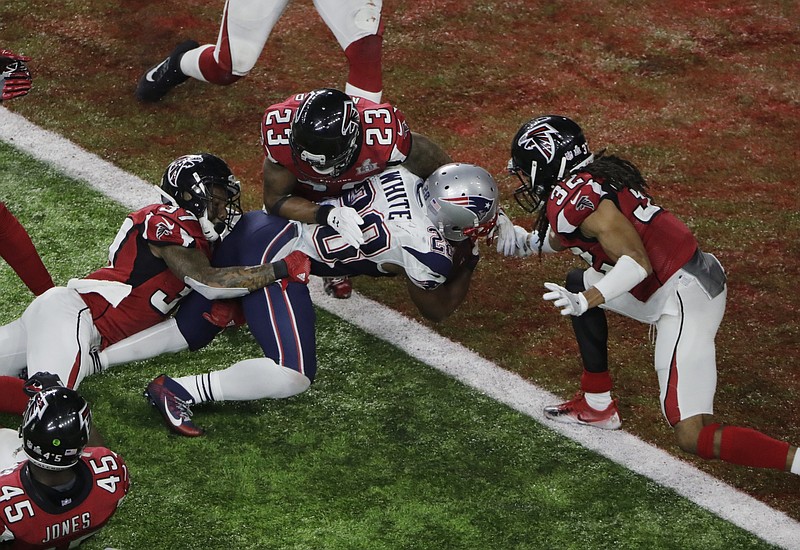Super Bowl LI was one for the history books. Vince Lombardi, the iconic Green Bay Packers coach for whom the coveted championship trophy is named, would have loved the intensity of the 51st battle of champions. The early appearance of an underdog win with the Atlanta Falcons' play was answered by the artful comeback of the New England Patriot.
One of the many lessons to be learned from this game, which was decided for the first time in its history in overtime, is about momentum. In the matchup between these division champions, the early momentum was with Atlanta. The Falcons finished the first half and played almost through the entire third quarter to a 28-3 lead over their opponent.
What happened that flipped the score so dramatically? How was it that New England's 31 second half points went unanswered by the Dirty Birds?
Training, experience, stamina, play-calling and many other factors were certainly at play, but countless times the broadcast team used the term momentum or noted a "shift in the momentum." After 43 minutes of play, Atlanta controlled the game and momentum. Then, all that shifted.
What exactly is momentum?
Merriam-Webster says momentum is a "property of a moving body that the body has by virtue of its mass and motion and that is equal to the product of the body's mass and velocity; broadly; a property of a moving body that determines the length of time required to bring it to rest when under the action of a constant force or moment."
This Law of Nature simply notes that once a body begins forward movement, it takes a longer distance and more energy to stop it.
Once the New England Patriots began successful play, the energy required by the Falcons to stop them was insufficient.
So, what? How does that apply to me?
Momentum applies to business, personal development, sports, learning and really most anything because objects at rest have no momentum. To achieve momentum, a person, an organization, a team or a group must be active and moving in a forward motion. Momentum also applies because, as a force of physics, it involves direction. Does your business, do you, your team, have direction that influences that forward movement?
In the world of physics, momentum is observed as a vector. A what? t's the force needed to carry a mass from point A to point B in a specific direction. The origin of the Latin word for vector is "carrier."
When working with your children, do you provide them a direction in which to go and are they able to move forward from one point to the next to build up momentum in their learning? As you facilitate your business teams, do you have both activity in a forward motion and a plan of direction to maintain growth? Or, do you have plenty of activity, but no direction; therefore, little momentum?
The physics of momentum are present in so much of our everyday life. However, too many choose not to read, work and strive; instead choosing to find the path of least resistance instead of advancement. When a mass is either at rest or in little motion, it's easily stopped.
As an individual, as a team, as a classroom, as a business team, pursue momentum.
Robin Smith, a former chairwoman of the Tennessee Republican Party, owns Rivers Edge Alliance.

